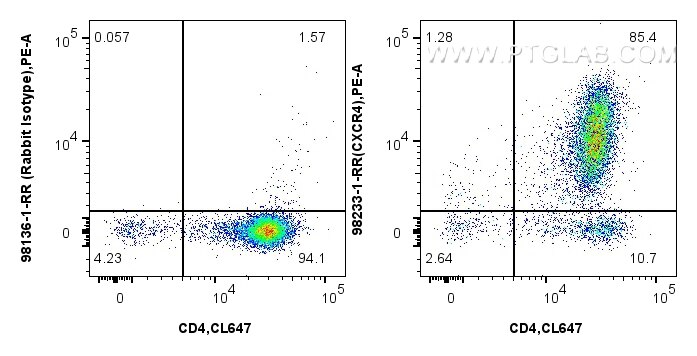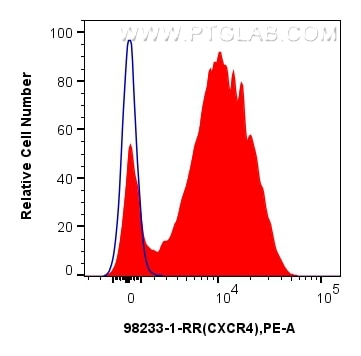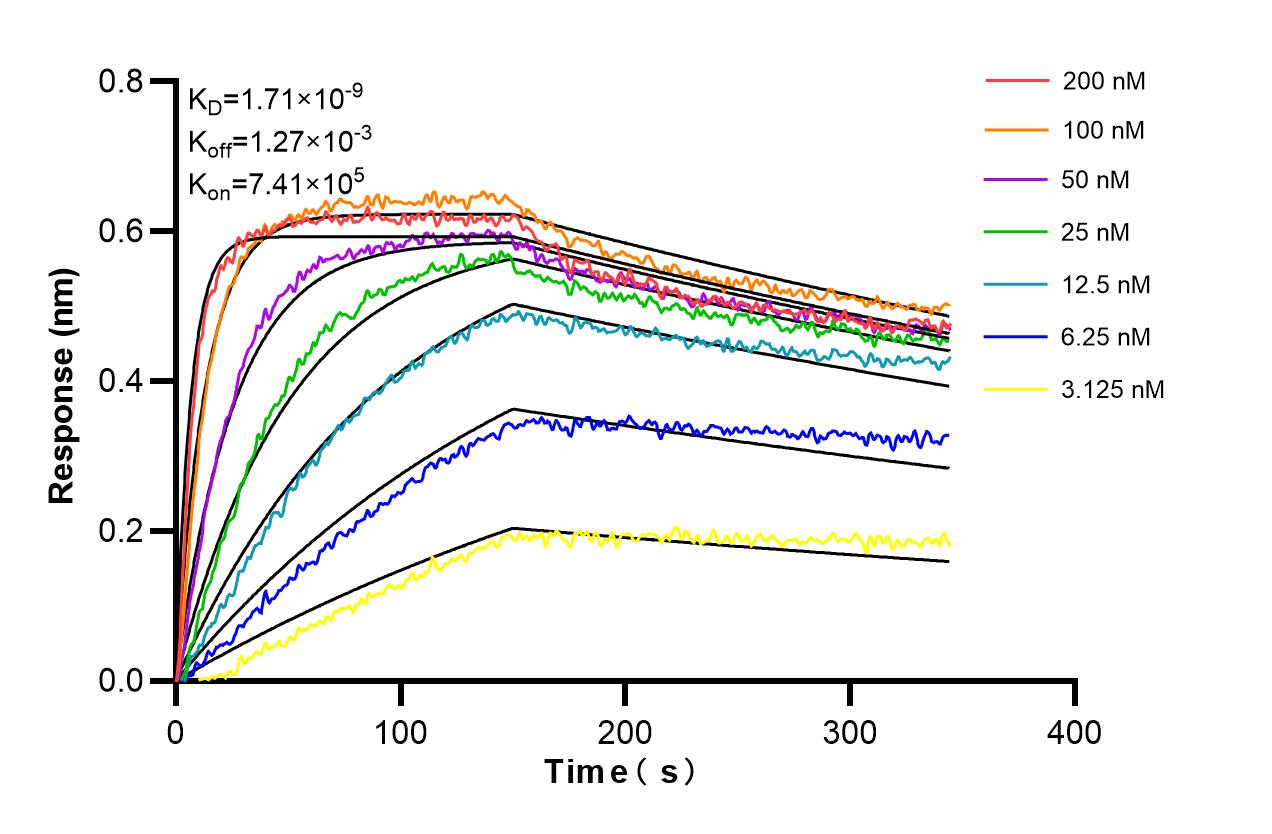Tested Applications
| Positive FC detected in | mouse thymocytes |
Recommended dilution
| Application | Dilution |
|---|---|
| Flow Cytometry (FC) | FC : 0.25 ug per 10^6 cells in 100 μl suspension |
| This reagent has been tested for flow cytometric analysis. It is recommended that this reagent should be titrated in each testing system to obtain optimal results. | |
| Sample-dependent, Check data in validation data gallery. | |
Product Information
98233-1-RR targets CXCR4/CD184 in FC applications and shows reactivity with mouse samples.
| Tested Reactivity | mouse |
| Host / Isotype | Rabbit / IgG |
| Class | Recombinant |
| Type | Antibody |
| Immunogen |
CatNo: Eg2231 Product name: Recombinant Mouse CXCR4 protein (rFc Tag) Source: mammalian cells-derived, pHZ-KIsec-N-rFc Tag: N-rFc Domain: 1-40 aa of NM_009911.3 Sequence: MEPISVSIYTSDNYSEEVGSGDYDSNKEPCFRDENVHFNR Predict reactive species |
| Full Name | chemokine (C-X-C motif) receptor 4 |
| Calculated Molecular Weight | 40kDa |
| GenBank Accession Number | NM_009911.3 |
| Gene Symbol | Cxcr4 |
| Gene ID (NCBI) | 12767 |
| Conjugate | Unconjugated |
| Form | Liquid |
| Purification Method | Protein A purfication |
| UNIPROT ID | P70658 |
| Storage Buffer | PBS with 0.09% sodium azide, pH 7.3. |
| Storage Conditions | Store at 2 - 8°C. Stable for one year after shipment. |
Background Information
C-X-C chemokine receptor type 4 (CXCR4, also known as CD184) is a widely expressed G protein-coupled seven-transmembrane receptor. CXCL12/SDF-1 is the biological ligand for CXCR4. The binding of CXCL12 to CXCR4 induces intracellular signaling through several divergent pathways initiating signals related to chemotaxis, cell survival and/or proliferation, increase in intracellular calcium, and gene transcription (PMID: 20484021). CXCR4 also functions as a coreceptor for HIV-1 entry (PMID: 9427609).
Protocols
| Product Specific Protocols | |
|---|---|
| FC protocol for CXCR4/CD184 antibody 98233-1-RR | Download protocol |
| Standard Protocols | |
|---|---|
| Click here to view our Standard Protocols |








